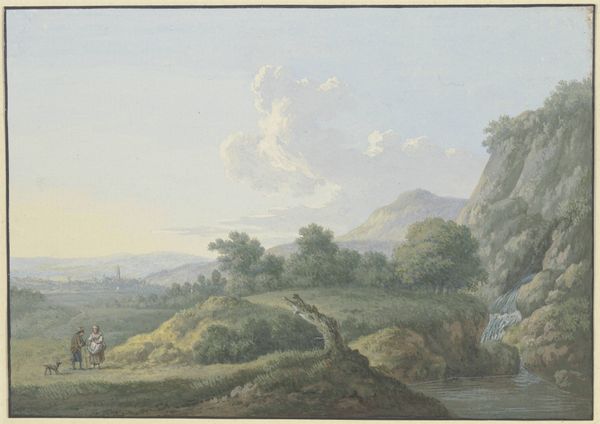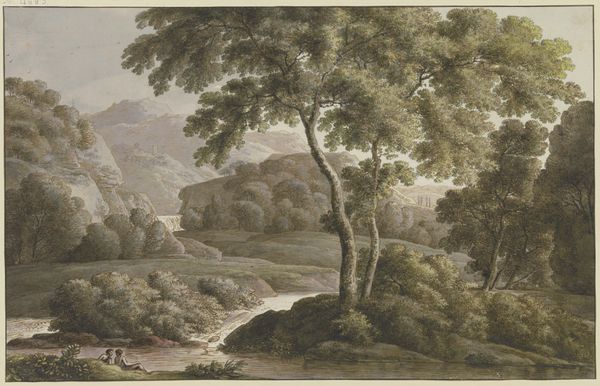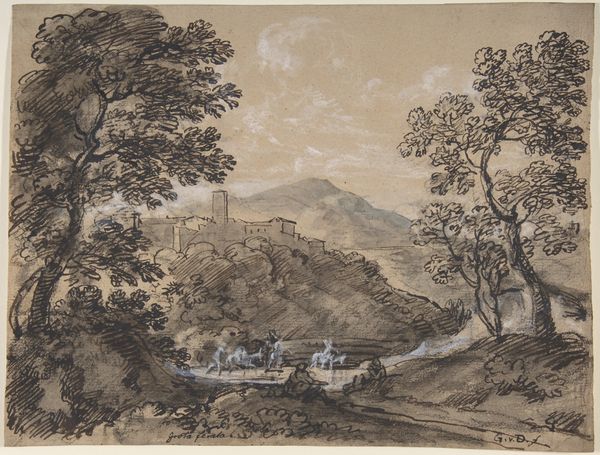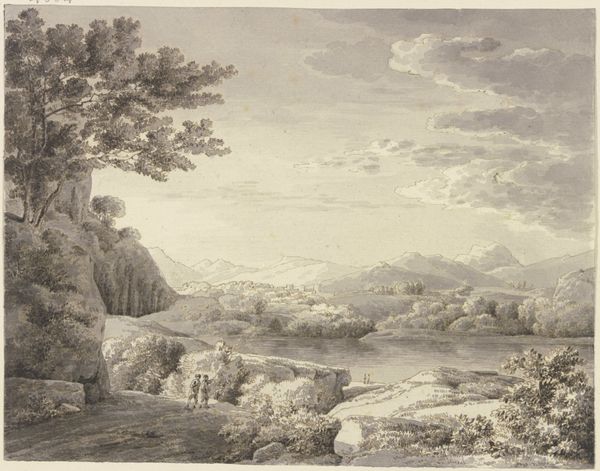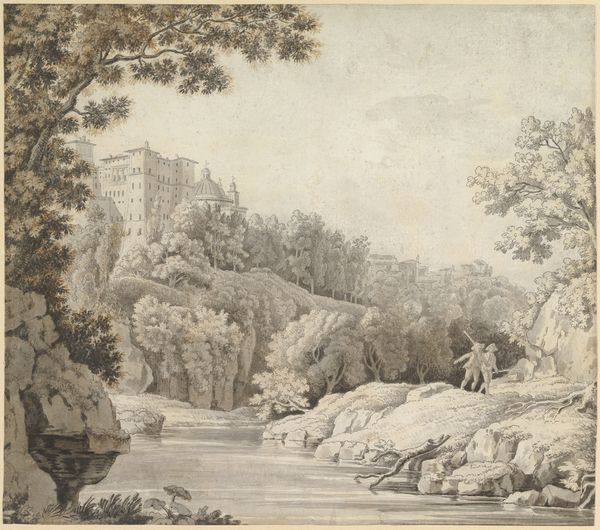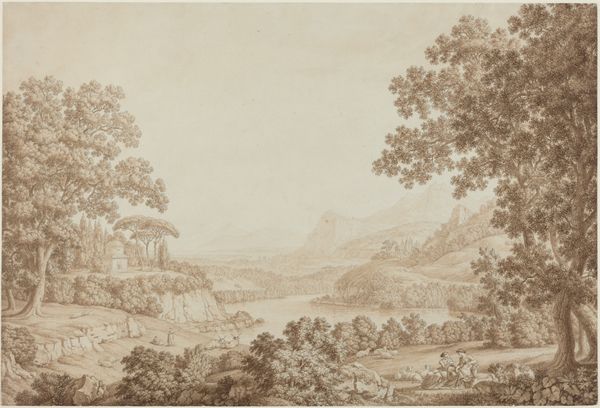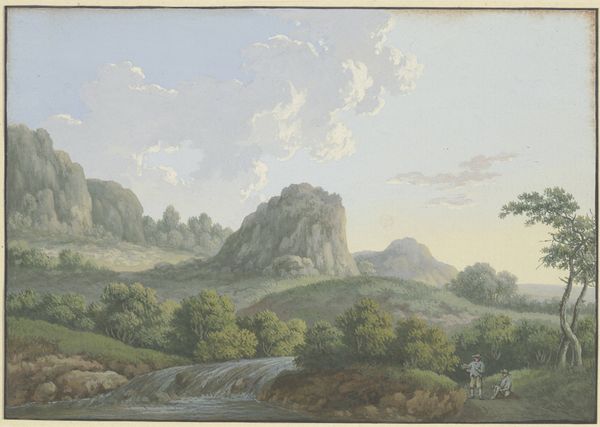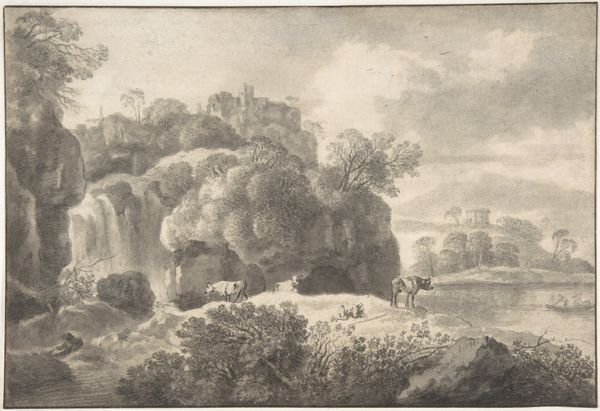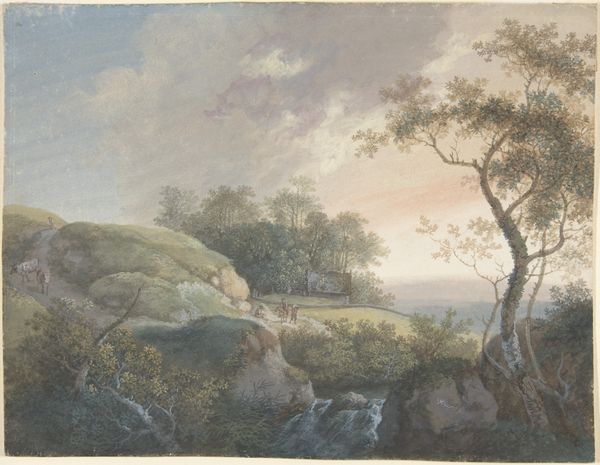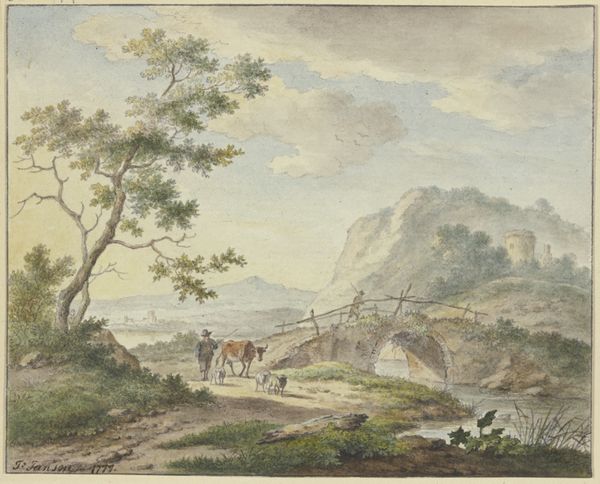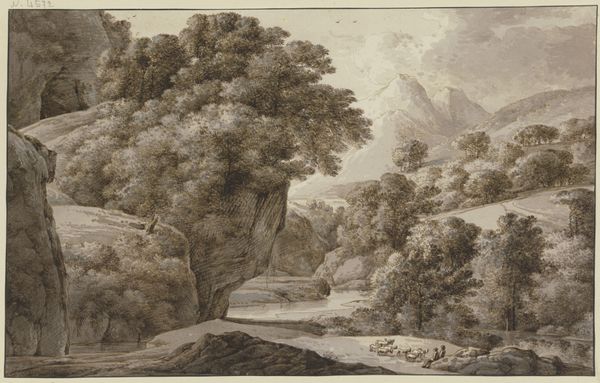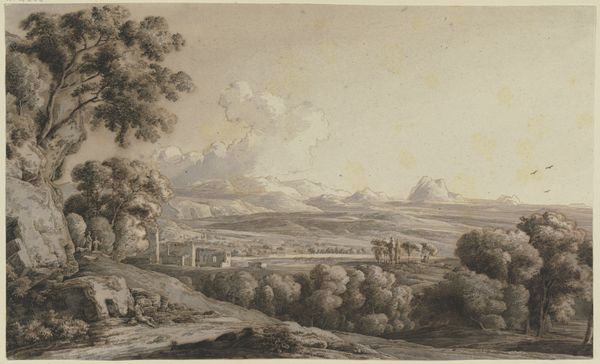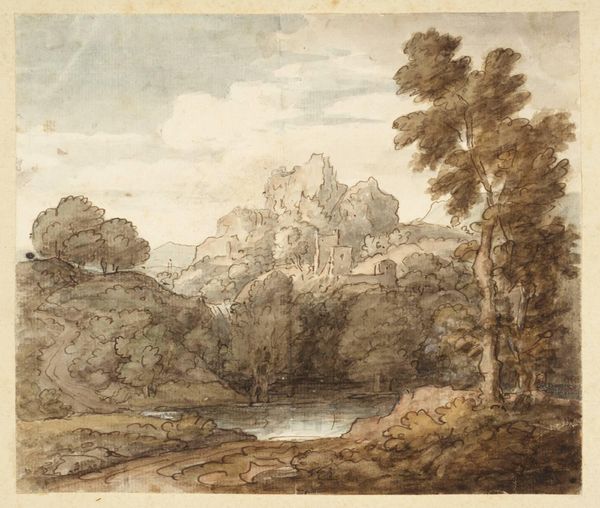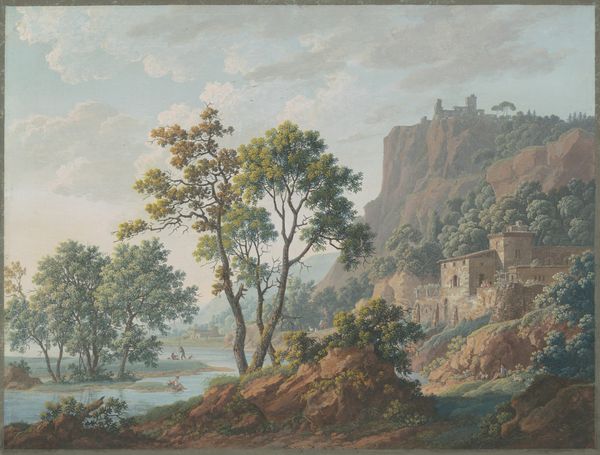
The Ruins of the Monastery of Oybin in the Zittau Mountains 1792
0:00
0:00
drawing, watercolor
#
drawing
#
ink painting
#
landscape
#
watercolor
#
romanticism
#
cityscape
#
watercolor
Dimensions: sheet: 44.6 x 58 cm (17 9/16 x 22 13/16 in.)
Copyright: National Gallery of Art: CC0 1.0
Editor: Here we have "The Ruins of the Monastery of Oybin in the Zittau Mountains," a watercolor and ink drawing from 1792 by Philipp Veith. It evokes a feeling of peaceful solitude, the gentle blending of colours feels very dreamlike. What are your thoughts on this piece? Curator: Indeed, the skillful use of watercolor to create soft transitions is immediately striking. Note how Veith orchestrates a composition balanced between detailed foreground elements and a receding, ethereal background. Observe how the textures are rendered, creating depth in the pictorial space. The very application of watercolor washes invites a theoretical discourse of materiality; it's as though the landscape itself emerges from the liquidity of the medium. Do you perceive a structured interplay between the natural and the constructed? Editor: I see that the architecture of the monastery is nestled amongst the greenery. It doesn't overpower the landscape, but sits harmoniously within it. How does the ruined structure influence the mood, from your perspective? Curator: The ruined monastery introduces a poignant dialectic. The structure, once a testament to human endeavor and spiritual aspiration, is now integrated with nature. A key feature is its state of disrepair; notice how the decay disrupts any strict geometric pattern, inviting instead a reading through entropy and the sublime. From a Formalist perspective, what new avenues does the interplay between structure and dissolution invite, regarding its interpretation? Editor: It does create a compelling contrast. Thinking about our own time, there's something deeply moving in the acceptance of change, almost a celebration of natural processes, that you wouldn't get from a perfect cityscape. Thank you. Curator: Precisely. Through this analysis, one can appreciate how Veith transforms material decay into a vehicle of visual philosophy. A fine way of appreciating it and yourself.
Comments
No comments
Be the first to comment and join the conversation on the ultimate creative platform.
